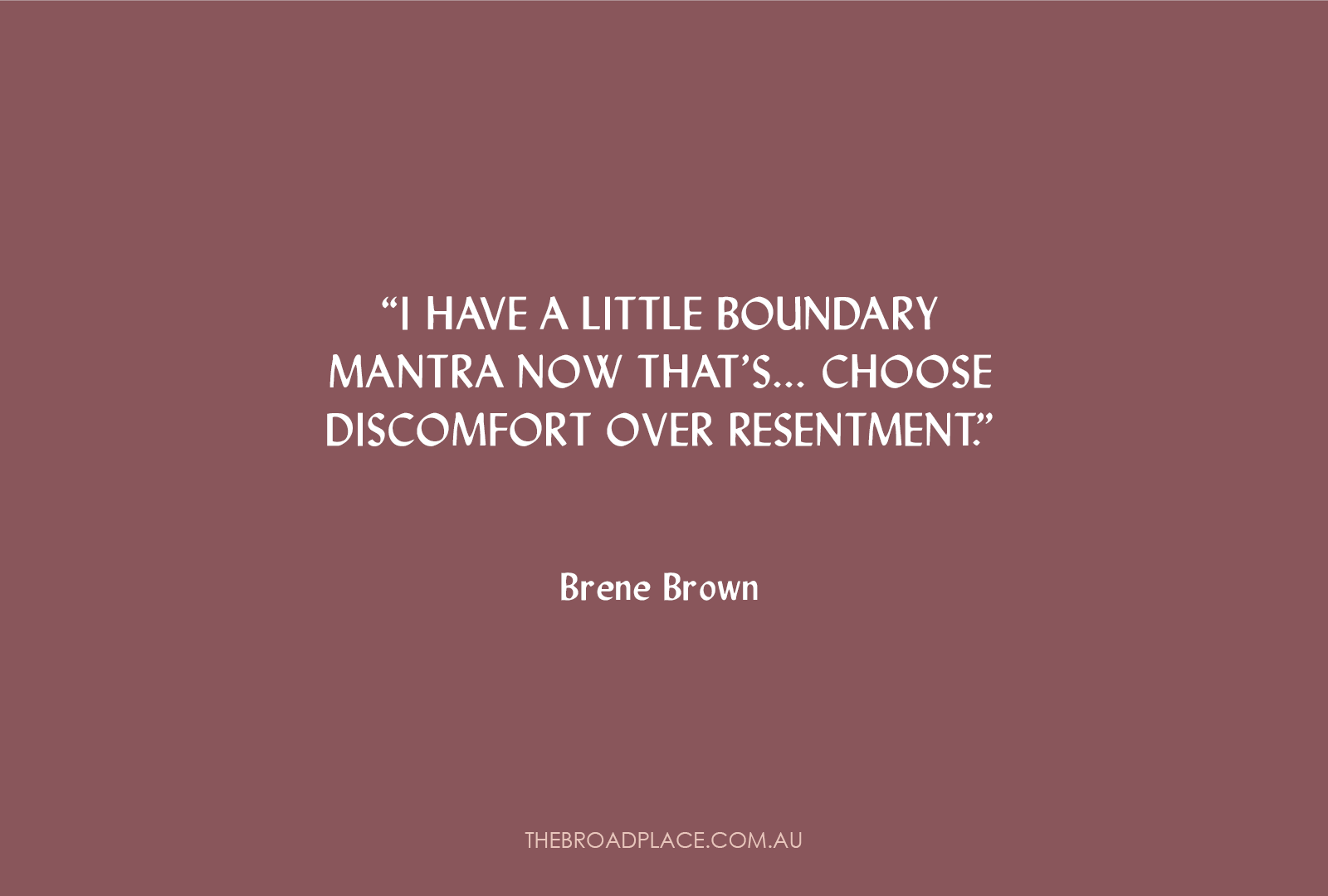Following on from yesterday’s Letter – compassion isn’t trying to promote or defend ourselves, which is the opposite of compassion, but is actually tapping into our basic goodness, AND additionally having boundaries. As Brene Brown explains, “The most compassionate people that I’ve ever interviewed… happened to be the most boundaried. They happened to be the people who had very, very clear boundaries about what they were willing to do, what they were not willing to do, what they were willing to take on, and what they were not willing to take on..”
Brene also describes which I like immensely, “I have a little boundary mantra now that’s… choose discomfort over resentment. In those moments that sometimes it’s uncomfortable to say “No, I can’t,” or “I’m sorry, I’m not available,” and it feels uncomfortable. But it’s so much better for me to choose being uncomfortable in a moment, than feeling complete resentment and judgment forever.” This I think is a wonderful practice for compassion. Turning up half heartedly, with a tinge of resentment and a story that ‘we are such a generous person’ is actually nonsense. But if you’re a recovering people pleaser like me, you’ll be very used to dealing with this situation and I hope motivated to get out of it as a habit!
I also like holding what I call ‘optimal humanity’ in mind. Sure, not everyone is going to be operating on the same wavelength as us, but assuming everyone is also out to get us, really strips us of our ability to be compassionate. Brene Brown explains, “What I’ve learned for me, around boundaries and compassion, is that I don’t know whether people are doing the best they can or not, but my life is better when I work from the assumption that they are. …But at the same time, that means that I need to have really clear boundaries. So instead of judging you, and feeling resentful, and feeling like you’re sucking me dry, or you’re taking advantage of me, I need to assume that you’re doing the best you can. And I need to set my boundaries, and not get involved to the degree where I lose control over how I feel about myself and what’s going on in that relationship.”
So compassion is an action, involving very deeply personal responsibility. It’s so much deeper than ‘oh I really feel for that person’, as we can start to see. It’s about knowing ourselves as humans deeply, so we can understand others better. Pema also says, “The only reason we don’t open our hearts and minds to other people is that they trigger confusion in us that we don’t feel brave enough or sane enough to deal with. To the degree that we look clearly and compassionately at ourselves, we feel confident and fearless about looking into someone else’s eyes.”
I hope this brings compassion into a new light for you, and gives you some things to play with.
Sent with love,
Jac x

